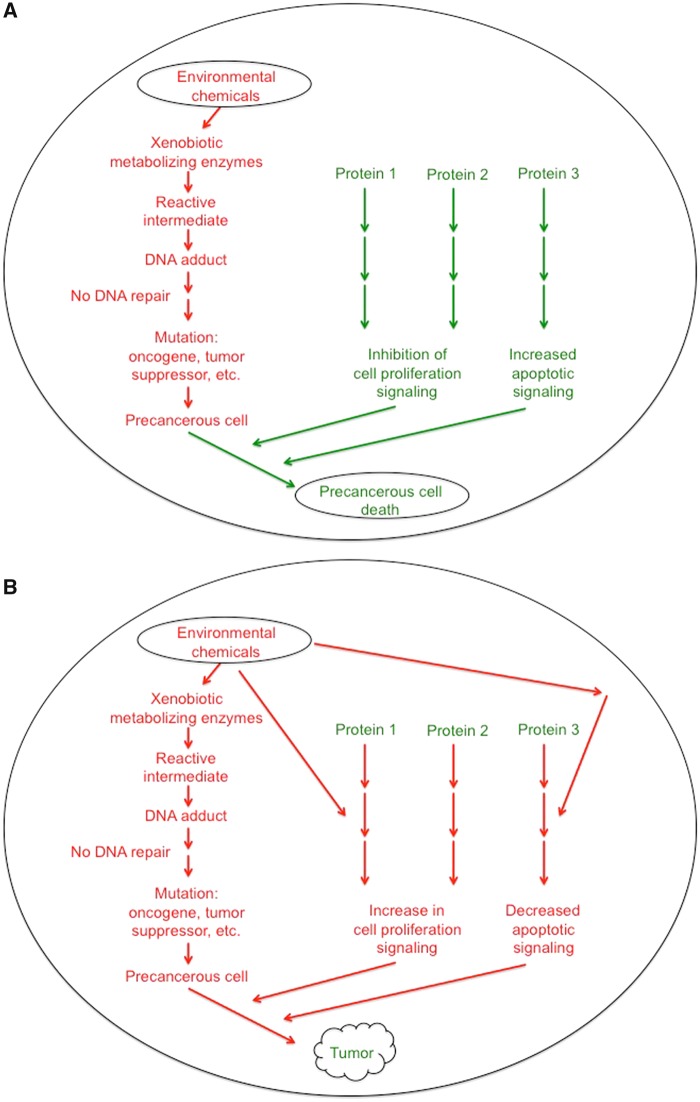Figure 1.
Mechanisms by which environmental chemicals interact with chemical metabolism and endogenous signaling. A, Environmental chemical exposure can be metabolized by xenobiotic metabolizing enzymes to reactive intermediates that form adducts with DNA, and if not repaired by DNA repair enzymes, cause permanent mutations in critical genes that are known to be targeted by some chemicals. This results in the formation of precancerous cells. Under normal situations, there are molecular pathways that regulate cell proliferation and apoptosis that can cause these mutant cells to stop growing or undergo apoptosis, thereby preventing the formation of a tumor. B, Environmental chemical exposure can be metabolized by xenobiotic-metabolizing enzymes to reactive intermediates that form adducts with DNA, and if not repaired by DNA repair enzymes, cause permanent mutations in critical genes that are known to be targeted by some chemicals, such as tumor suppressors or proto-oncogenes. This metabolism can be influenced by polymorphisms in the xenobiotic metabolizing enzymes that catalyze these reactions. Collectively, the pathway outlined in (B) results in the formation of precancerous cells. If the environmental chemical(s) interfere with normal signaling such as those that prevent proliferation or induce apoptosis, and this can lead to the formation of tumors and cancer.

